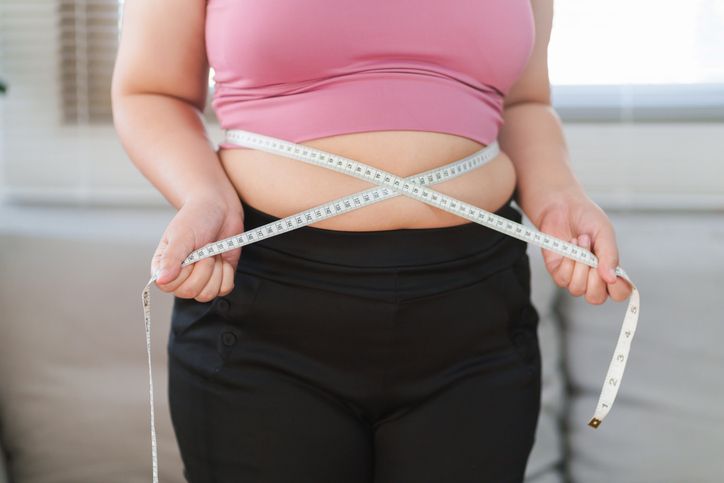
Author: Natalie Ng|Updated: 29 April 2025
Crash diets promise rapid weight loss, but they usually backfire. When you eat way fewer calories than your body needs, your metabolism slows down. You burn fewer calories, lose lean muscle instead of fat, and your hunger hormones go into overdrive. This means you’ll feel hungrier, have less energy, and are more likely to gain back the weight—often with more fat than before. Most people who follow very low calorie diets regain the weight within a few months to a couple of years. These short-term diets can also mess with your mood, energy, and even cause issues like hair loss or low protein intake. Over time, they can hurt your metabolism and make it harder to lose weight in a healthy way. Keep reading to learn what really happens to your body during crash diets—and why smarter food choices work better for lasting fat loss.

The Science Behind Crash Dieting

Your Body Thinks You're Starving
Crash diets often mean eating far fewer calories than your body needs. This triggers a survival response. Your body slows down your metabolic rate to save energy. This is the same response it would have during real starvation.
Slower Metabolism Means Fewer Calories Burned
When your body senses a drop in calorie intake, it tries to burn fewer calories. You use less energy—even while resting. This makes it harder to keep losing weight, even if you continue the diet.
You Lose Muscle, Not Just Fat
Very low calorie diets cause your body to break down lean muscle for fuel. Losing muscle means your basal metabolic rate drops further. Less muscle = fewer calories burned.
Less Muscle = Slower Fat Loss
Since muscle helps with burning calories, losing it makes it harder to lose body fat later. You may weigh less for a short period of time, but most of that loss isn’t just belly fat—it’s lean body mass, which is not ideal.
Hunger Hormones Go Out of Balance
Crash diets also change your hormone levels. Your body makes more ghrelin (makes you feel hungry) and less leptin (helps you feel full). So even if you try to eat fewer calories, your body pushes you to eat more.
You Gain Weight Back—Fast
Once you stop the diet and eat normally again, your slowed metabolism can't keep up with the calories. Your body stores more fat, especially around the belly. This leads to rapid weight regain, often ending with a higher body weight than where you started.

Metabolic Slowdown and Fat Storage

Hormones Trigger Fat Storage
Crash diets and very low calorie diets trigger hormonal shifts that encourage fat storage. When your body senses a drop in calorie intake, it increases cortisol, a stress hormone that promotes fat storage—especially around the belly. At the same time, ghrelin (your hunger hormone) rises, making you crave food, while leptin (your fullness hormone) drops, making it harder to feel satisfied.
Your thyroid hormones, which help regulate your metabolic rate, also decrease. This slows your ability to burn calories. On top of that, levels of testosterone and growth hormone—both important for keeping lean muscle and encouraging fat loss—drop. These changes work against your goal to lose weight and keep it off.
Reduced Calorie Burning Rate
Your metabolism adapts quickly to lower calorie intake. Within just a few weeks, your basal metabolic rate can drop by up to 25%. This means you burn fewer calories during daily activities—even simple things like walking or sitting.
The body sees this as protection against starvation. So when you stop the crash diet and start eating normal amounts again, your system stores those extra calories as fat instead of using them. This survival response makes you regain body weight, often as more fat, not muscle.
A Cycle That's Hard to Break
As your metabolism slows and hormones change, you enter a cycle that’s tough to escape. You eat fewer calories, your body burns fewer calories, and when you eat more again, it stores the extra as fat. That’s why crash diets often end in weight regain—and why losing weight fast this way doesn't last.
Next, we’ll explore how these diets can lead to serious nutritional problems that affect your health beyond just weight.
Book Now to Experience
S6 Body Sculpting Treatment
1 Minute Self-Registration
Date should not be before minimal date

Nutritional Deficiencies and Health Risks

Cutting Calories Means Cutting Key Nutrients
Crash diets often mean cutting out entire food groups or eating far too few calories. This leads to missing out on vitamins, minerals, and essential macronutrients like protein, healthy fats, and carbohydrates. Without these, your body can’t function properly—even if you're losing body weight.
For example, skipping healthy fats affects hormone production and brain function. Cutting too many carbohydrates can leave you feeling tired, foggy, and unable to concentrate. Low protein intake can cause muscle weakness and fatigue, while a lack of dietary fibre can lead to digestive issues.
Physical Health Risks Increase
Extreme caloric restriction puts your immune system under pressure, leaving you more open to illness. Over time, crash diets can cause:
• Dizziness and fatigue from low blood sugar
• Muscle loss from low protein
• Mood swings due to poor fat intake
• Heart risks like irregular rhythms from electrolyte imbalances
• Gallstones caused by rapid weight loss
• Bone loss from not getting enough calcium and vitamin D
These health problems don’t show up all at once. But over time, they make it harder to maintain a healthy body and mind.
Long-Term Harm for Short-Term Loss
What starts as a quick fix can create serious health conditions. Diets that drastically lower daily calories may seem like a shortcut, but they often leave you worse off. Losing weight shouldn’t come at the cost of your physical health.

Muscle Loss and Body Composition Changes

Crash Diets Burn Muscle, Not Just Fat
When your calorie intake drops too low, your body doesn’t just burn fat—it also breaks down lean muscle to use as energy. This happens because your body wants to protect its fat stores during what it sees as a food shortage.
This is bad news for your metabolism. Muscle helps you burn more calories, even at rest. Losing it means your basal metabolic rate drops, so you burn fewer calories throughout the day.
Your Body Composition Shifts
Losing lean muscle changes how your body looks and works. You might lose weight on the scale, but not in a healthy way. These changes often include:
• A lower metabolic rate, which slows future fat loss
• Reduced strength and less physical endurance
• A “skinny fat” appearance—where you’re lighter but have a higher body fat percentage
This shift means you’ll look and feel weaker, even if you're technically lighter.
Regained Weight Is Mostly Fat
Once the diet ends, most of the weight you gain back is fat, not muscle. That makes it even harder to get the lean body mass and shape you want. Over time, repeated crash diets can make it harder to build muscle and easier to store more fat.
Book Now to Experience
S6 Body Sculpting Treatment
1 Minute Self-Registration
Date should not be before minimal date

Psychological Impact of Extreme Dieting

Mental Stress and Anxiety
Crash diets often create more than just physical stress—they also affect your mental health. Eating far too few calories for a short period of time leaves your brain under-fueled. This raises stress hormones like cortisol, which can cause mood swings, irritability, and anxiety.
You may start to feel guilt around eating, especially if you “break” your diet. Food becomes something you stress over, not something you enjoy. Over time, this can lead to:
• Constant worry about calories, weight, and food choices
• Avoiding social events that involve food
• Mood swings and low energy linked to nutrient deficiencies
These emotional ups and downs can make it harder to stick to any kind of weight loss plan, healthy or not.
Food Fear Development
Severe food rules create a fear-based relationship with eating. You may label foods as “good” or “bad,” and start to avoid anything outside your plan. This often leads to obsessive behavior, such as:
• Checking nutrition labels constantly
• Avoiding meals you can’t control
• Feeling anxious about eating with others
Eventually, eating stops being natural. It turns into something stressful, even scary. This fear can stick with you long after the diet ends and may lead to disordered eating patterns.
Self-Worth Takes a Hit
Extreme dieting often links your self-worth to your diet success. If you follow the rules, you feel “good.” If you slip up, you feel like a failure. This mindset creates a toxic cycle where how you feel about yourself depends on what you eat or how much you weigh.
You might notice:
• Low mood or anger after a “bad” food day
• Avoiding people or activities because of your body image
• Harsh self-talk and negative thoughts
Crash diets don’t just hurt your body—they can hurt your sense of identity and self-respect.

The Cycle of Yo-Yo Weight Loss

Why Weight Comes Back—And Then Some
Crash diets often lead to rapid weight loss, but they don’t teach sustainable habits. Once you stop the strict eating plan, your calorie intake goes up. But your metabolism, now slower from weeks of caloric restriction, can’t keep up. So instead of burning the extra calories, your body stores them—mostly as fat.
This creates the classic yo-yo effect:
• You lose weight quickly.
• You regain it just as fast.
• You often end up heavier than before.
Your body stores more fat than lean tissue each time, especially around the belly, making it harder to maintain a healthy weight in the long term.
Metabolism Slows More Each Time
Every time you repeat this crash-recovery cycle, your basal metabolic rate may drop a little more. That means you’ll burn fewer calories than before, even if your weight is the same.
This cycle also increases your body fat percentage over time and reduces lean muscle, making it more difficult to reach a healthy body composition. Eventually, your body becomes more efficient at storing more calories and worse at burning them.
The Psychological Toll of Yo-Yo Dieting
The emotional ups and downs of losing and regaining weight can damage your motivation. Constantly feeling like you’ve failed—even though the diet was flawed to begin with—can lead to frustration, burnout, and loss of trust in your own body.
Book Now to Experience
S6 Body Sculpting Treatment
1 Minute Self-Registration
Date should not be before minimal date

Sustainable Alternatives for Weight Management

Slow, Steady Changes Work Best
Instead of relying on fad diets or cutting daily calories to extremes, long-term success comes from simple changes you can stick with. Focus on eating nutrient-dense foods like vegetables, fruits, lean proteins, healthy fats, and whole grains. These give your body the fuel it needs without forcing it into starvation mode.
You don’t need to cut entire food groups. Instead, improve your food choices gradually. For example, reduce added sugars or swap processed snacks for high-fibre foods. These small steps help you feel full and satisfied while keeping your calorie intake balanced.
Eat Mindfully, Not Less
Sustainable eating isn’t about eating the least—it’s about eating smarter. Pay attention to your body’s hunger and fullness signals. Slow down at meals, avoid distractions, and notice when you're satisfied. This reduces the urge to overeat and helps prevent eating disorders linked to crash diets.
You don’t need to obsess over portion sizes, but being aware of what and how you eat builds better habits over time.
Movement That Feels Good
Forget punishing workouts. Physical activity should support your health, not drain it. Choose movement that feels good—whether it’s walking, dancing, swimming, or stretching. Consistent activity helps protect lean muscle, increases your ability to burn calories, and supports a stable body weight without putting stress on your body.

Building Healthy Habits That Last

Start Small and Keep It Simple
Crash diets fail because they demand too much, too fast. Real change comes from building one habit at a time. Instead of cutting more calories overnight, try adding one extra serving of vegetables or switching from sugary drinks to water. These shifts are easier to maintain and add up over time.
Choose clear, realistic goals. “I’ll walk 20 minutes a day” works better than “I’ll exercise more.” Track your habits if it helps, and focus on progress—not perfection.
Make Habits Fit Your Life
The best diet isn’t the trendiest—it’s the one you can stick with. Find meals you enjoy that still support weight loss and health. Include foods with enough protein, healthy fats, and carbohydrates to support energy, muscle maintenance, and a steady mood.
If something doesn’t work for your schedule, taste, or energy level, adjust it. You don’t need to follow strict diet plans to be healthy—you need consistency.
Stay Connected and Supported
Long-term success improves when you have support. That could be a friend, a group, or a healthcare provider. Talking about challenges and celebrating small wins keeps you motivated and focused.
These changes may not seem dramatic, but they’re the opposite of crash diets for a reason—they actually work. Over time, these habits support better body composition, protect your metabolism, and reduce health risks like cardiovascular disease, high blood pressure, and low mood.

A Smarter Way to Target Fat: S6 Body Sculpting Treatment
If you’ve struggled with crash diets, you already know how frustrating and unsustainable they are. You lose weight fast, but often at the cost of lean muscle, a slower metabolism, and poor long-term results. Many people end up gaining more fat, especially around the belly, as their body tries to recover from extreme calorie restriction.
That’s where the S6 Body Sculpting Treatment comes in—a non-invasive alternative that helps you reduce stubborn fat without the harsh effects of fad diets or aggressive low calorie diets.
How the S6 Body Sculpting Treatment Works
This treatment uses a combination of bio-laser technology and vacuum suction to directly break down fat cells beneath the skin. Here’s what happens during a session:
1. Bio-laser energy is applied to the subcutaneous fat layer, causing fat cells to release fatty acids.
2. Vacuum suction supports the natural lymphatic drainage process, helping your body eliminate those fatty acids.
3. The result? Targeted fat loss in areas that are usually hard to slim with diet plans alone—like the waist, belly, thighs, arms, calves, and buttocks.
Why It Works Better Than Crash Diets
While crash dieting lowers your calorie intake and slows down your ability to burn calories, the S6 treatment works with your body—not against it. It doesn’t damage lean muscle or disrupt your hormones, and there’s no rebound weight gain because the fat cells are naturally broken down and removed.
Benefits of S6 Body Sculpting
• No surgery, no downtime – You can return to your day right after the session.
• Targets fat directly – Great for people with resistant fat areas who want to avoid restrictive weight loss diets.
• No pain – The bio-laser is gentle, and the treatment is completely non-invasive.
• No rebound effect – Fat cells don’t come back once removed through the natural detox process.
• No need for extreme dieting – Can support your fat loss goals without the emotional and physical toll of eating disorders or long-term caloric restriction.
A Complement, Not a Shortcut
The S6 treatment isn’t a replacement for healthy habits—it’s a supportive tool. It works best when combined with balanced food choices, regular movement, and smart portion sizes. If you’ve been stuck in the cycle of yo-yo dieting, this can be a way to break out of it and get visible results without harming your metabolic rate or overall health.
Book your personal consultation today to find out how S6 Body Sculpting can help you lose fat safely, avoid the damage of crash dieting, and feel confident in your body again.
New Beauty's S6 Body Sculpting TreatmentBook Now to Experience
S6 Body Sculpting Treatment
1 Minute Self-Registration
Date should not be before minimal date
FAQ
How Long Does It Take for Metabolism to Recover After Crash Dieting?
Your metabolism can take anywhere from 6 weeks to 8 months to fully recover, depending on how severely you've restricted calories. Don't let this discourage you - you can speed up recovery by gradually increasing calories, incorporating strength training, and being patient with your body's natural healing process.
Can Certain Supplements Minimize the Negative Effects of Crash Dieting?
While supplements like multivitamins, omega-3s, and protein powders might help offset some nutritional deficiencies, they can't protect you from the fundamental damage crash dieting does to your metabolism. You're better off breaking free from the crash diet cycle entirely. If you're determined to use supplements, focus on those that support your overall health: B-complex vitamins, magnesium, and electrolytes to maintain basic functions.
Are Some Crash Diets Less Harmful Than Others?
While some crash diets appear less damaging, they're all fundamentally risky to your health. You might think juice cleanses are gentler than extreme fasting, but they still deprive your body of essential nutrients. Even metabolism-boosting crash diets that include some protein can't prevent muscle loss and metabolic slowdown. Your body doesn't distinguish between better or worse forms of severe caloric restriction - it responds with the same survival mechanisms.
What Age Groups Are Most Vulnerable to Crash Diet Complications?
You're most at risk from crash diets during your teens and early 20s when your body's still developing, as sudden calorie restriction can disrupt hormones and growth. If you're over 65, you'll face increased dangers too since crash diets can cause muscle loss and weaken your bones. Pregnant women and nursing mothers should never attempt crash diets, as they need consistent nutrients for their health and their baby's development.
Do Genetics Play a Role in How Bodies Respond to Crash Diets?
Your genetic makeup substantially influences how your body responds to crash diets. You'll find that your metabolism, fat storage patterns, and hormone regulation are largely determined by your genes. If you've noticed that some of your family members struggle with weight loss, you might face similar challenges. Don't blame yourself - your DNA affects how quickly you lose weight and how your body manages extreme calorie restrictions.
Recommended Articles
COPYRIGHT© NEW BEAUTY MANAGEMENT LIMITED 2026. ALL RIGHT RESERVED.




